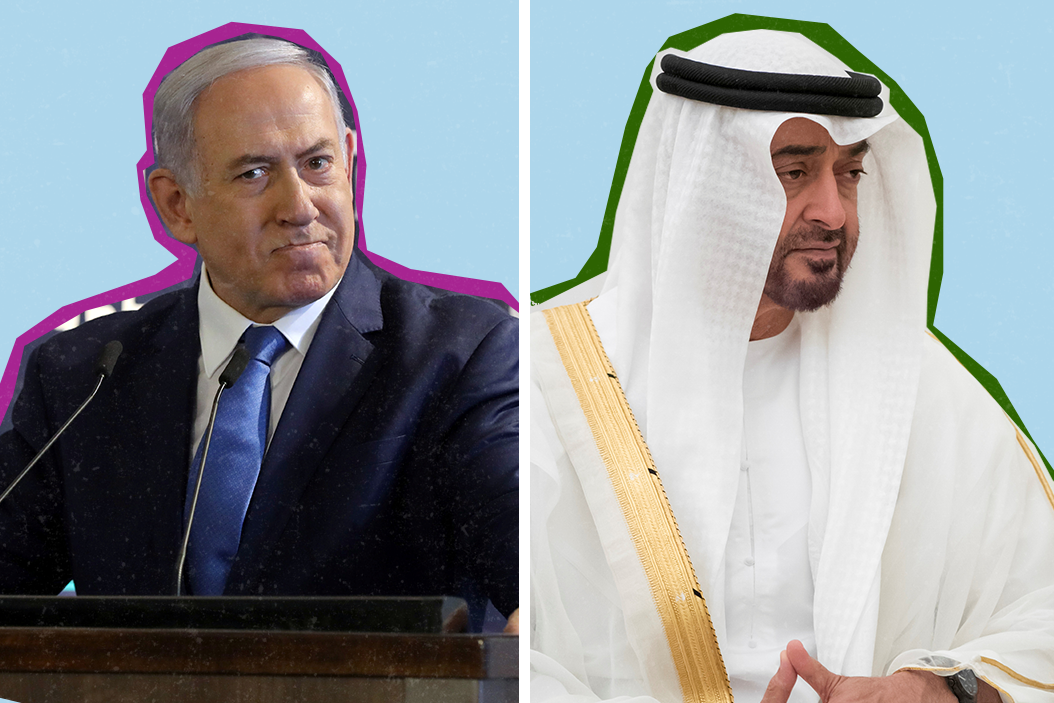News
August 13, 2020
UAE and Israel strike historic deal: In an historic development, the United Arab Emirates and Israel have agreed to normalize ties. As part of the deal, Israel's Prime Minister Benjamin Netanyahu has agreed to suspend his government's plans to annex swaths of the occupied West Bank in the near term (he made sure to emphasize that the plan was merely on hold, likely a nod to his right-wing base). The peace deal, brokered by the Trump administration, marks the first time that a Gulf Arab state has normalized ties with Israel — though it's widely believed that shared concerns over the threat posed by Iran have led to backchannel cooperation between Israel and the Gulf Arab states. Many analysts, therefore, say that the agreement is largely symbolic, formalizing ties that have existed for years. It's only the third Arab-Israeli peace agreement since Israel's establishment in 1948 (a deal was signed with Egypt in 1978 and with the Kingdom of Jordan in 1994). Two key takeaways: the move gives the Trump administration a big boost before the November 3 elections as he struggles to keep up in the polls. It also reveals that lack of progress on the Israeli-Palestinian issue will no longer impede powerful Arab states from establishing formal ties with Israel, long the official position of the Gulf Cooperation Council.
Is Lukashenko turning the tide? The mass protests that have rocked Belarus since last weekend's rigged election have died down over the past two days, in part because of internet shutdowns and a brutal crackdown by riot police. Factory strikes and some smaller protests against police violence persist, but opposition leader Svetlana Tikhanovskaya remains in (possibly forced) exile in neighboring Lithuania, and law enforcement appear to be staying loyal to President Alexander Lukashenko, who has run the country of 9.5 million with an iron fist since 1994. What's more, despite the testy relationship between him and Russian president Vladimir Putin, the Kremlin (along with China) appear so far to be still in his corner, while the European Union has threatened to impose further sanctions on Belarus in the near term (though it needs the support of all 27 EU members to do so). Unless the streets can mount a fresh challenge to his rule that undermines the loyalty of his goons and cops, he may well survive this immediate phase of the crisis. Keep an eye on what happens this weekend.
Filipinos to test Putin's vaccine: The Philippines plans to begin testing on its own citizens Russia's new vaccine — dubbed Sputnik V —for the coronavirus in October, after President Rodrigo Duterte accepted an offer to conduct nationwide clinical trials from his Russian counterpart, Vladimir Putin (presumably in exchange for getting free doses for all 107 million Filipinos once the vaccine is ready for distribution in May 2021). Duterte — who volunteered on live TV to be the first to inject himself with Sputnik V (though he reneged shortly after) — is apparently not concerned about the danger of cutting corners to rush the development of a miracle cure against COVID-19. The Philippines recently overtook Indonesia as the country with the most coronavirus cases in Southeast Asia, amid a second government-mandated partial lockdown of Metro Manila that expires on Sunday. Although Filipinos have yet to have their say on whether they are willing to be tested, popular confidence in mass inoculation is likely to remain low following a botched national vaccination campaign against dengue in 2016 killed several children.
What We're Ignoring
Spain's northwestern Galicia region has banned outdoor smoking — without social distancing — to contain the spread of the coronavirus. Although most scientists believe that smokers can spread COVID-19 droplets when they exhale, it is unlikely that most residents will comply with the restriction in a country where anti-smoking laws and higher prices have failed to curb overall smoking rates, especially among young Spaniards (who are also those most likely to not wear face masks).
More For You
Most Popular
Fishing boats moored at Taganga Beach, as fishermen express concern over unclear US government videos showing strikes on vessels during anti-narcotics operations, amid fears that those targeted may have been fishermen rather than drug traffickers, in Santa Marta, Colombia, on October 20, 2025.
REUTERS/Tomas Diaz
Walmart’s $350 billion commitment to American manufacturing means two-thirds of the products we buy come straight from our backyard to yours. From New Jersey hot sauce to grills made in Tennessee, Walmart is stocking the shelves with products rooted in local communities. The impact? Over 750,000 American jobs - putting more people to work and keeping communities strong. Learn more here.
© 2025 GZERO Media. All Rights Reserved | A Eurasia Group media company.
